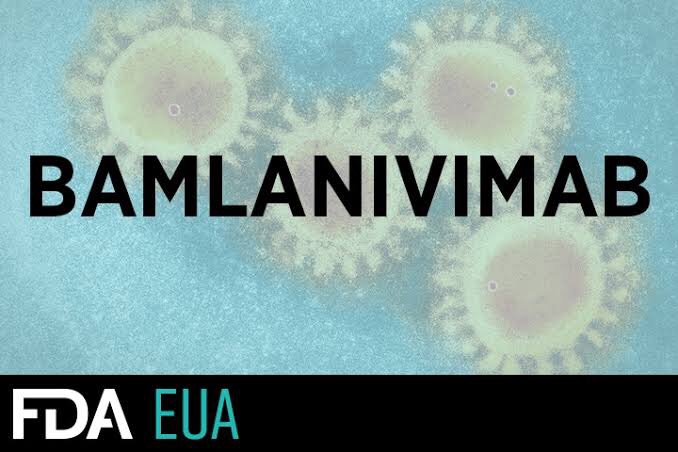The investigational neutralizing IgG1 monoclonal antibody bamlanivimab has been granted an FDA Emergency Use Authorization (EUA) for treatment of recently diagnosed mild to moderate COVID-19 in patients who are ≥12 years old, weigh at least 40 kg, and are at high risk for progressing to severe disease and/or hospitalization.
Bamlanivimab was shown in clinical trials to reduce COVID-19-related hospitalization or emergency room visits in patients at high risk for disease progression within 28 days after treatment when compared to placebo.It is not authorized for patients who are hospitalized due to COVID-19 or require oxygen therapy due to COVID-19.
Mechanism of Action
Bamlanivimab is a monoclonal antibody that is specifically directed against the spike protein of SARS-CoV-2, designed to block the virus’ attachment and entry into human cells.
Dosage and Administration
Bamlanivimab is authorized for administration as a single 700-mg IV infusion over at least 60 minutes. The drug should be given as soon as possible after a SARS-CoV-2 positive test result and within 10 days of COVID-19 symptom onset. Patients should be treated in a facility staffed and equipped to manage anaphylaxis and they should be monitored for hypersensitivity reactions during administration of the drug and for at least 1 hour after completion of the infusion.
The diluted solution for infusion should be used immediately after it is prepared. If immediate use is not possible, it can be stored in the refrigerator for up to 24 hours or at room temperature for up to 7 hours, including infusion time.
Adverse Effects
Signs and symptoms of infusion-related reactions may include: fever, chills, nausea, headache, bronchospasm, hypotension, angioedema, throat irritation, rash including urticaria, pruritus, myalgia, dizziness..
Anaphylactic reactions are also reported
Nausea , Diarrhea, Dizziness , Headache, Pruritus and Vomiting are also common.
Conclusion
The investigational IV monoclonal antibody Bamlanivimab has been granted an Emergency Use Authorization (EUA) from the FDA based on its association with a reduction in emergency department visits and hospitalizations in recently diagnosed patients with mild or moderate COVID-19 considered to be at high risk of progressing to severe disease and/or hospitalization.

